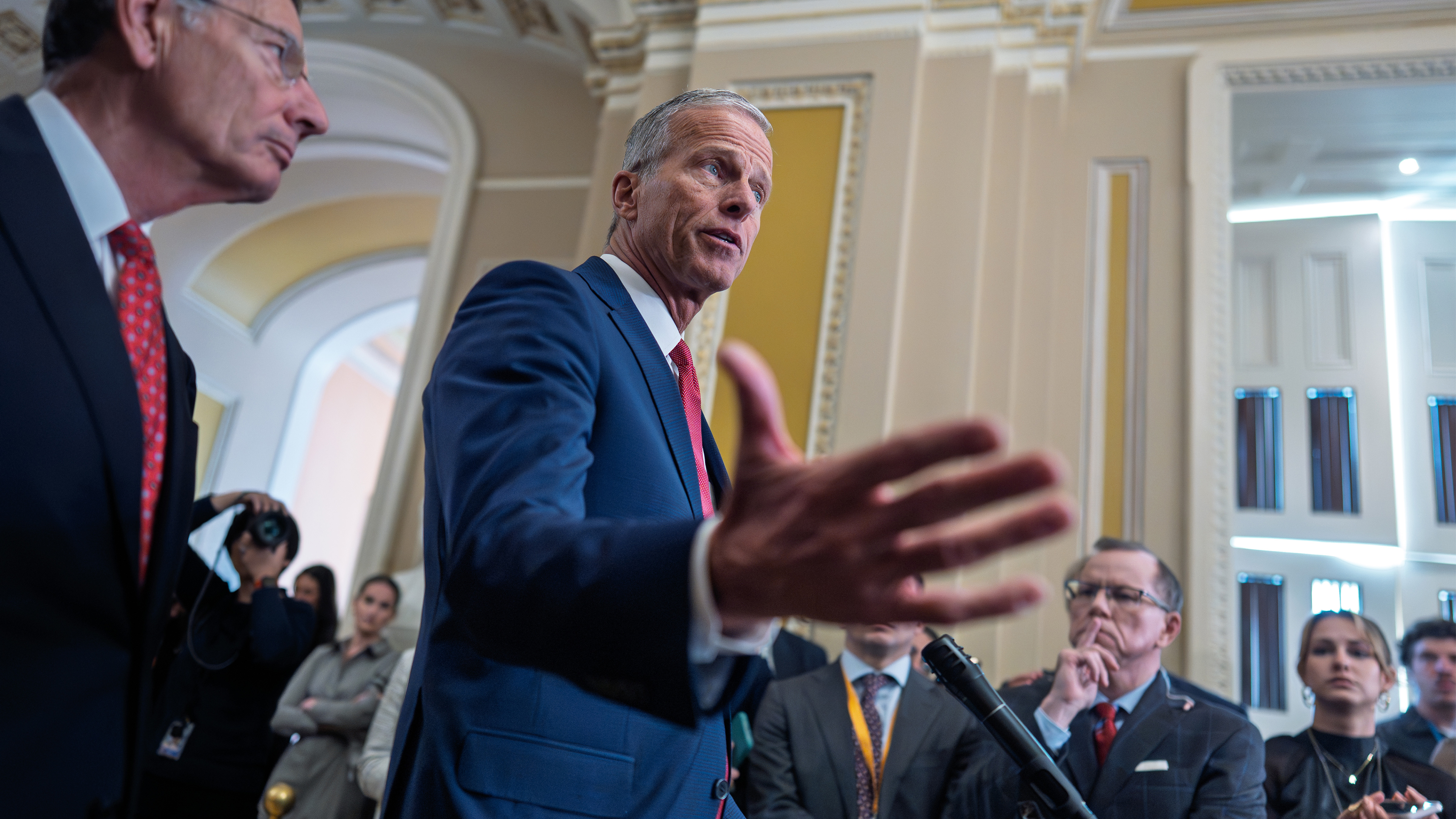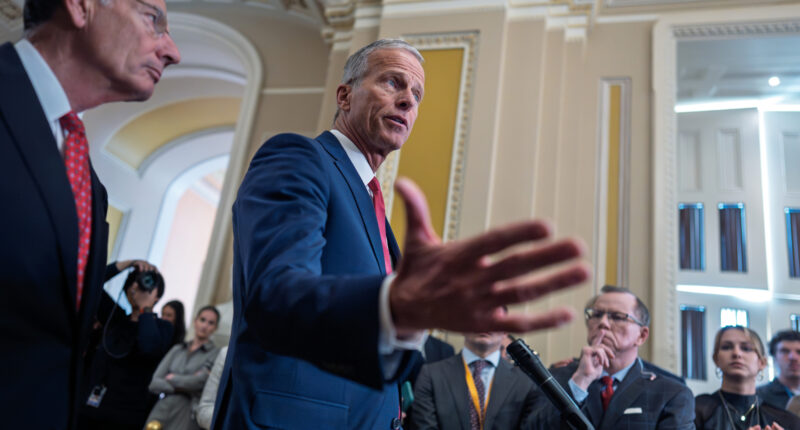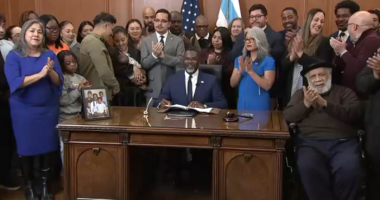Share this @internewscast.com
In a bid to resolve the ongoing government shutdown, Republican senators are crafting a bipartisan proposal for spending bills, aiming to attract Democratic support. However, the success of this initiative remains uncertain.
Democrats have consistently voted against reopening the government, with 14 votes cast in opposition as they push for the continuation of expiring health care subsidies, which are anticipated to be excluded from the proposed legislation. On Thursday, many Democrats reiterated their stance, insisting President Donald Trump and Republican leaders engage in negotiations regarding the subsidy extension.
“That’s what leaders do,” remarked Sen. Ben Ray Lujan, D-N.M. “You have the gavel, you have the majority, you have to bring people together.”

A preliminary vote on this new legislative package, which has yet to be disclosed to the public, might occur as early as Friday.
At that point, Democrats face a pivotal decision: Should they persist in their fight for a substantive agreement on extending the subsidies set to expire in January, thus prolonging the shutdown’s impact? Or should they opt to reopen the government, relying on Republican assurances of a future health care vote without any guaranteed results?
Senate Democratic leader Chuck Schumer of New York has not yet stated his position on the matter. Meanwhile, Sen. Brian Schatz, D-Hawaii, noted the lack of consensus among Democrats, stating that “without something on health care, the vote is very unlikely to succeed.”
Still, some Democrats are feeling increased urgency to alleviate the growing crisis at airports, pay government workers and restore delayed food aid to millions of people now that the shutdown has become the longest in U.S. history. A small group has been working with Republicans on a deal that would reopen the government with only an agreement for a future health care vote.
Republicans have been short five votes so far as they have held repeated roll calls to fund the government. Even a small defection from the Democratic ranks could break the logjam.
Democrats are “working on unity and working on health care,” said Sen. Sheldon Whitehouse, D-R.I.
A new effort to reopen the government
Senate Majority Leader John Thune’s decision to keep the Senate in session Friday, and perhaps over the weekend, came after Trump urged Republicans at a White House breakfast Wednesday to end the shutdown. Trump said he thought the six-week impasse was a “big factor, negative” for Republicans in Tuesday’s elections that were overwhelmingly favorable for Democrats.
The bipartisan package that Thune is proposing would fund parts of government – food aid, veterans programs and the legislative branch, among other things – and extend funding for everything else until December or January. The three individual spending bills that would be included are the product of bipartisan negotiations that have continued through the shutdown.
The package would replace the House-passed bill that the Democrats have rejected repeatedly. It would only extend government funding until Nov. 21, a date that is rapidly approaching after six weeks of inaction.
It mirrors a tentative plan that moderate Democrats have been sketching out. The proposal led by Sen. Jeanne Shaheen, D-N.H., would also take up Republicans on their offer to hold a vote on extending the expiring Affordable Care Act subsidies at a later date.
It was unclear what Thune, who has refused to negotiate while the government is closed, would promise on health care.
Johnson delivers setback to bipartisan talks
Democrats are facing pressure from unions eager for the shutdown to end and from allied groups that want them to hold firm. Many Democrats have argued that the wins for Democrats on Election Day show voters want them to continue the fight until Republicans yield and agree to extend the health tax credits.
A vote on the health care subsidies “has got to mean something,” said Vermont Sen. Bernie Sanders, an independent who caucuses with the Democrats. “That means a commitment by the speaker of the House, that he will support the legislation, that the president will sign.”
But Speaker Mike Johnson, R-La., made clear he will not make any commitments. “I’m not promising anybody anything,” Johnson said when asked if he could promise a vote on a health care bill.
Johnson’s clear refusal was a setback for negotiators. Michigan Sen. Gary Peters, one of the moderate Democrats involved in negotiations, said the speaker’s comments were “a significant problem.”
“We have to make sure we have a deal that we can get broad support for,” Peters said.
As Democrats try to figure out what to do, Schumer has not said when he thinks the shutdown should end. He and House Democratic leader Hakeem Jeffries of New York have called for Trump to sit down with them and negotiate – a meeting that seems unlikely to happen.
“Donald Trump clearly is feeling pressure to bring this shutdown to an end,” Schumer said.
Closed-door negotiations become public
The Democrats and Republicans who have been talking insisted they were making steady progress on a deal.
Republicans suggested on Thursday they might be open to including language in a final agreement that would reverse some mass firings of government workers by the White House, according to two people familiar with the private talks granted anonymity to discuss them. It was unclear whether that proposal would be included in the new package.
Senate Appropriations Committee Chairwoman Susan Collins of Maine, a moderate Republican who has been talking to Democrats, says she wants furloughed workers to be given back pay and workers who have been fired during the shutdown to be “recalled.”
“We’re still negotiating that language,” she said.
.

















